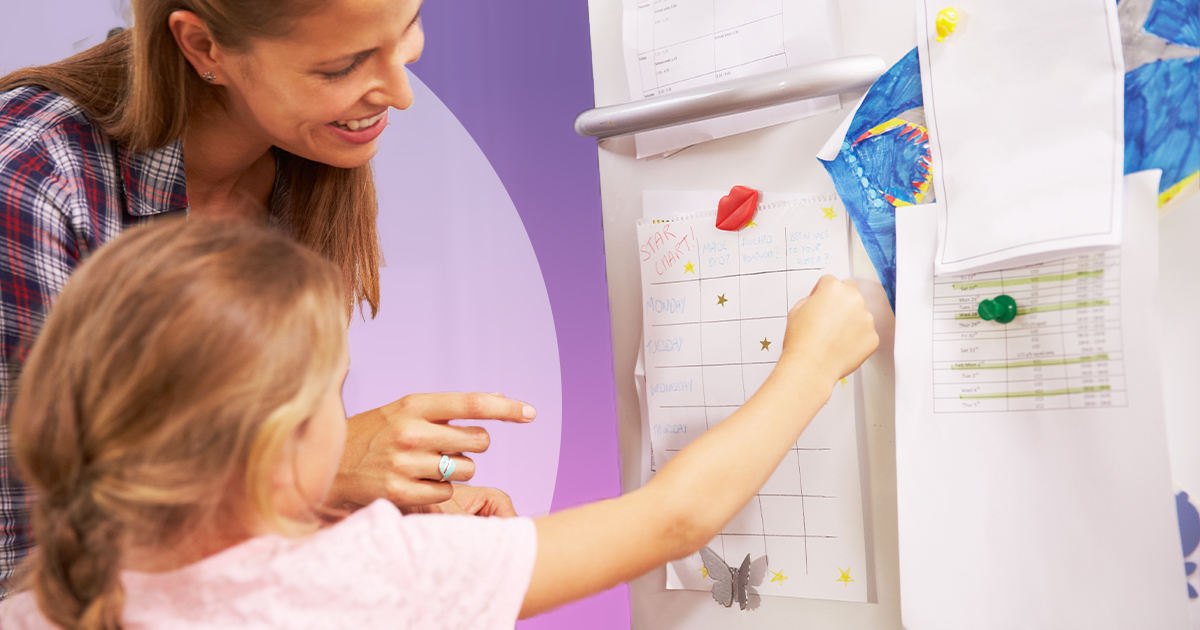These days it’s difficult enough to raise any child to grow up to be a responsible adult, but there are far more challenges for those parents of children with special needs. Of course, there are also joys that come with raising a child with special needs.
Parents of special needs children may also have concerns that may be quite different from other parents like their independence. As there tend to be many more challenges for parents of special needs children to face, there are also more opportunities for joyful celebration when their child reaches a new goal.
In this blog, we will discuss practical tips for parents of children with special needs.
Expecting Challenges
One parent I know finds great joy in how her child achieves milestones that no one ever predicted or expected, though there can be challenges parents may face.
Facing the challenges of raising a child with special needs is far easier if that child is properly supported and the parents have good strategies for both overcoming their child’s behavioral obstacles as well as coping with the stressors that may arise while caring for that child. Having good behavioral strategies as well as coping strategies can allow parents to experience more joyful moments with their child and make the difficult moments easier to bear.
Having good behavioral strategies as well as coping strategies can allow parents to experience more joyful moments with their child and make the difficult moments easier to bear.
No matter what our problems are, it’s nice to know others who have faced those same problems and have the same feelings we have. Having a strong support network of parents/advocates/professionals can allow parents to access more information/resources, feel like a part of a greater community, or just have a sympathetic ear when it’s time to vent.
Understanding Your Child's Strengths and Weaknesses
As an example, some children are identified as having “perseverative” behavior, which usually has a bad connotation. Is perseverance not a quality we’d all like to see in our children? Maybe a child’s perseveration with certain behaviors is causing specific problems, but is the ability to persevere a bad thing?

Using Diagnostic Labels
Diagnostic labels can be very helpful for a variety of reasons including qualifying for insurance funding and extra resources/programs, but also because they give parents a sense of what to expect. It’s important for parents to educate themselves about a child’s specific condition, but this new knowledge must allow consideration for individual differences.
Diagnosis however can be tricky in some cases, or uncertain. Two children with the same diagnosis (autism for example) can appear very different.
Questions to Ask in Diagnostic Labeling:
1) What are (currently) the most important skills my child needs to learn?
2) Are there behaviors interfering with learning these new skills?
3) What supports does my child need in order to learn these skills in a reasonable amount of time?
Diagnostic labels can be very helpful, and one way they help is by making it easier for parents to build a strong support network of other parents whose children have the same or similar diagnosis.
Creating a Supportive Environment
The first part of creating a supportive environment is to have routines and structure. Predictability of daily events is important to all of us, but even more important to someone who may have no language or poorly developed language.
Routine Building
You may not be able to explain to a child the sequence of upcoming events, but consistent routines can help a child to understand what to expect.
Carrotology can help children predict their day using engaging graphics and icons arranged in the order of their day. It helps parents by encouraging them to think of significant events and activities that are important to get a child through their day.
Adjusting the Home Environment
A child with special needs may also need numerous adjustments to their home environment to meet their particular needs. Some adjustments are made for the sake of safety, and some are for promoting greater independence.
For example, some parents need either child-proof locks on doors or alarms when a door has been opened, as many children with special needs will attempt to leave the home when no one notices.
Some changes may be related to increasing a child’s independence with daily living skills like ensuring their clothes are laid out for the next day or that their bookbag is at the front door.
Fostering At-Home Relationships

A good relationship with siblings can help with developing a good relationship with peers in an educational setting. Not only can a sibling assist the child with special needs, like the parent, but they also can be a source of enjoyment and incidental teaching of social skills.
Nurturing Your Child's Development Through Independence
- Independence that’s important to the child and
- Independence that’s important to the parents.
It may be important to a parent that their child independently brush their teeth properly, but independence in this area may not be very important to that child. On the other hand, it may be very important for the child to be able to independently make some microwave popcorn or their own breakfast. Whether independence is primarily important to the parent or the child it’s still one of the primary goals in child development.
Building Self-Esteem
Independence goes hand in hand with self-esteem, which typically comes from our accomplishments. Children with strong self-esteem tend to view themselves positively and say good things about themselves. Strong self-esteem also helps to protect us from negative comments and criticisms by others.
Educational and Social Needs
Other parents may educate themselves about the process or even obtain the services of an advocate who is very familiar with the IEP process and can advise the parent of problems and pitfalls and assist them in working with school staff. If your child’s educational and behavioral goals are not appropriate, or explained vaguely, it can definitely have a negative impact on their behavior problems.

Social Development in Education
Social development is also addressed in the IEP process and these goals are as important as educational goals. Classroom placement can also affect social development as your child’s peers provide lots of daily opportunities for social interactions.
Many children with special needs will benefit by being educated with their same-aged, non-disabled peers.
This gets at the concept of “inclusion” which advocates for children to be educated with their typically developing peers whenever possible/practical. As an example, if a child has some language, but is still learning to talk, which is social behavior, it’s better to be around talking peers than those with no language at all.
Finally, depending on the nature of your child’s needs, it may be necessary to seek out professional help from psychologists or behavior analysts who can provide parent/teacher training, assist with behavior problems, and also work with your child’s IEP team on goals for the acquisition of new skills as well as behavior reduction goals.
Self-Care for Parents
The importance of self-care for parents of special needs children cannot be stressed strongly enough. There are many stressors that can arise from raising a special needs child including extra care they may require and the presence of behavior problems.
Some parents may find it difficult to get a moment to themselves as their children may require constant close supervision to ensure their safety. Furthermore, it may be difficult for parents to find a babysitter who is familiar with special needs children, or they just may not feel comfortable with anyone other than a family member. Under these circumstances, parents may need to seek help from professionals, family members or friends.
Finding Time for Yourself
When caring for a special needs child, it’s important that parents find time for themselves. As an example, some parents have children who can’t really entertain themselves even for a few minutes without needing parental supervision.
A child who can at least occupy themselves for 20 or 30 minutes can give parents a bit of breathing room. Some parents will benefit from professional counseling to help them with the stress of raising a special needs child. Parents who have learned good stress management skills can more easily tackle the daily challenges their child may present.
Connecting with Other Parents
Celebrating Milestones in Children with Special Needs

Setting Realistic Goals
Every child, no matter what the diagnosis, can and does learn, but they learn different things at different rates just like everyone else. Also remember that your child will learn both formally and informally. A failure to make academic progress in a formal teaching program doesn’t mean that a child isn’t making informal gains through daily observation and interactions with others. If our expectations are unreasonable, it may be difficult to see improvements, but if our expectations are in line with a child’s strengths and abilities it’s usually far easier to see meaningful improvements.
Promoting Healthy Outcomes for You and Your Child
To sum up, children with special needs present special challenges, but they can also give parents special joys and surprises. If Parents have practical strategies for promoting independence and managing behavior problems, it can greatly reduce stress for everyone and push the needle towards more joyful moments with their children.
It’s important to understand your child’s needs, their strengths and their weaknesses. It’s good to understand the classic symptoms of your child’s condition even if they don’t show all the symptoms.
Building a support network can help parents feel less isolated and learn about valuable resources to help their child. Having solid routines in place and adapting your home to support behavior change can also go a long way in helping your child’s development.
Remember to take good care of yourself. Parents need healthy ways to cope with stress and relying on connections with other parents can help tremendously.
Celebrate the milestones even if your child’s progress is small and slow. Setting realistic goals that tap into your child’s strengths can help to prevent disappointment and frustration from a lack of progress on goals that may just be too difficult to obtain.
Staying positive and focusing on your child’s strengths can be contagious and can encourage those working with your child to remain equally positive.
How Carrotology Can Help Your and Your Child Stay Motivated and on Track
Government Resources
- Centers for Disease Control and Prevention (CDC)*: Provides information on various disabilities, including autism, ADHD, and cerebral palsy.
- Individuals with Disabilities Education Act (IDEA)*: Ensures special education services for children with disabilities.
- Social Security Administration (SSA): Offers disability benefits and resources for families.
Organizations and Support Groups
- The Arc: Advocates for people with intellectual and developmental disabilities.
- Autism Speaks: Dedicated to autism research, awareness, and support.
- Special Olympics: Provides sports training and competition for children and adults with intellectual disabilities.
- Parent to Parent USA: Connects families of children with disabilities for support and guidance.
Online Resources
- Understood: Offers personalized resources and support for parents of children with learning and attention issues.
- Special Needs Alliance: A national organization of attorneys dedicated to disability and special needs law.
Financial Resources
- Supplemental Security Income (SSI): A government program providing financial assistance to children with disabilities.
- ABLE (Achieving a Better Life Experience) Accounts: Tax-advantaged savings accounts for individuals with disabilities.
- Grants and scholarships: Various organizations offer grants and scholarships for children with disabilities.
Therapies and Interventions
- *Occupational therapy (OT)*: Helps children develop daily living skills.
- *Speech therapy*: Enhances communication skills.
- *Physical therapy (PT)*: Improves gross motor skills.
- *Applied Behavior Analysis (ABA) therapy*: Supports children with autism and other developmental disabilities.
Books and Publications
- “The Special Needs Parent Handbook” by Jonathan Singer
- “Raising Human Beings” by Dr. Ross W. Greene
- “Exceptional Parent” magazine: Offers practical advice and resources for parents of children with disabilities.


